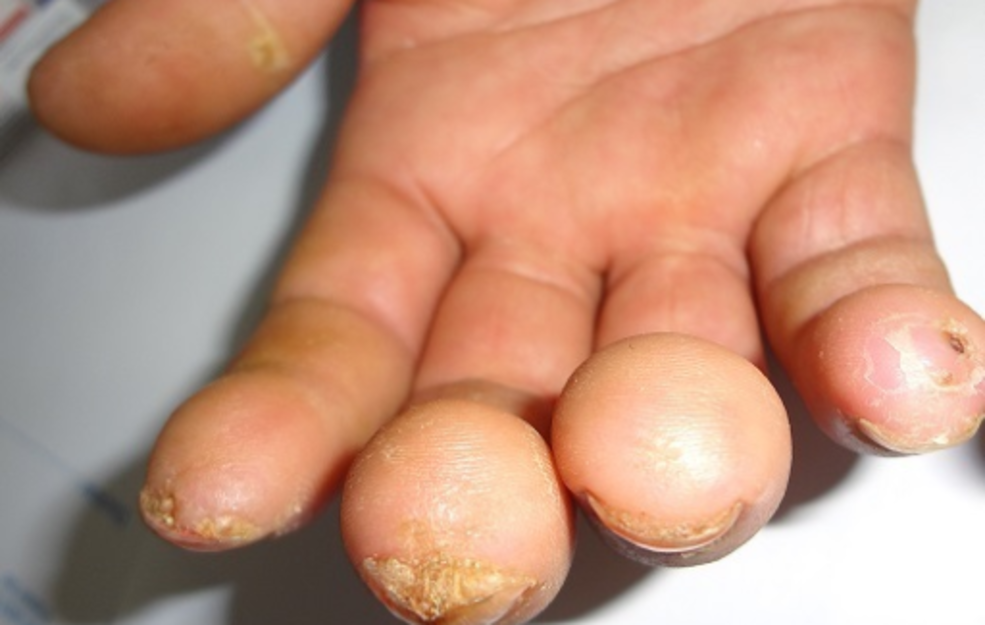What Does Lupus Look Like?

Warning

Lupus

Lupus

Lupus

Lupus

Lupus

Lupus

Lupus

Lupus

Lupus

Lupus






















Lupus is a disease that weakens the immune system. It appears in three different types and is deadly and harmful, but not contagious. It can manifest due to several reasons, causing serious damage to one’s health. One has to be very careful of such diseases that attack the body and make it weak in a short span of time.
Lupus is a chronic, autoimmune disease that causes the immune system to experience hyperactive attacks and damages the normal, healthy tissue. These result in symptoms such as inflammation; swelling and damage to the joints, skin, lungs, kidneys, and blood; and heart-related diseases.
The normal function of the immune system is to make antibodies, which protect and fight against antigens, such as viruses and bacteria. Lupus weakens the immune system so that it stops differentiating between antigens like viruses. It could also cause the immune system to direct antibodies against the healthy tissue and not antigens. It can cause swelling, pain, and tissue damage.
Lupus can lead to many clinical manifestations, which could affect the skin, joints, brain, lungs, kidneys, blood vessels, and many other internal organs.
Scientific research and development centers offer lots of information that can easily be made available to educate people about the disease.
Some of the key points about lupus are given below:
- Lupus is an autoimmune disease that causes problems in the immune system.
- Lupus can be a placid disease or can become life-threatening.
- Lupus is not contagious.
- Lupus is commonly known as systemic lupus erythematosus, or SLE.
- The various types of lupus are cutaneous, drug-induced, and neonatal.
- The Lupus Foundation of America stated that 1.5 to 2 million people in the U.S. and more than 5 million people around the world suffer from lupus.
- Most lupus sufferers are women, and the disease is increasing among them.
- The disease is common among the fifteen-to-forty-five age group.
- 72% of Americans aged eighteen to thirty-four have either not heard of the disease or know nothing about it.
- According to one medical study, lupus is caused by both genetic and environmental stimuli.
- The disease becomes serious due to certain factors, including exposure to sunlight, certain prescription medications, infection by the Epstein-Barr virus, and exposure to certain chemicals.
- The environmental factors that can cause the disease include stress, ultraviolet light, smoking, some strong medications combined with antibiotics, infections, and the virus called Epstein-Barr, which is found in children.
- There are infections caused by lupus that have rare symptoms, but can be controlled with medication.
- Corticosteroids and immunosuppressive drugs are the most effective treatment for lupus, as well as adopting a better lifestyle.
Types of Lupus
Different types of lupus have been identified, though the most common form is systemic lupus erythematosus, or SLE. The other types of lupus include discoid (cutaneous) lupus, drug-induced lupus, and neonatal lupus.
- Discoid lupus: People suffering from discoid lupus have a version of the disease that is limited to the skin. It is characterized by a rash that appears on the face, neck, and scalp, but it does not affect the internal organs. Less than 15% of patients with discoid lupus progress into the systemic form of the disease. The disease can be neither predicted nor prevented by its symptoms, which sometimes look similar to other conditions.
- Lupus SLE: Lupus SLE looks and acts more dangerously than the other types of the disease. Some diseases manifest symptoms relating to inflammation or other problems with only the skin and joints, while people suffering from SLE have joint, lung, kidney, blood, and heart complications. The SLE type of lupus is often characterized by periods of flare-ups, which activate the disease and cause serious health issues in the body.
- Drug-induced lupus: Drug-induced lupus is mainly caused by certain reactions to prescribed drugs, and it might show symptoms similar to those of SLE lupus. Most commonly, the drug-associated form is caused by a hypertension medication called hydralazine and a heart arrhythmia medication called procainamide. But there are a few other drugs that can also cause the condition. Drug-induced lupus reduces its effects mainly when the person stops taking the drug(s) completely. The disease is generally activated by a strong dosage, which triggers the infection and causes serious health issues.
- Neonatal lupus: The rarest form, neonatal lupus, occurs when the fetus gets the disease from the mother, who passes it. The infant, either an unborn or newborn, gets skin rashes and other complications that cause trouble for the heart and blood. The rashes take about six months to disappear from the child’s body. The disease is troublesome and needs a lot of care and attention.
Facts About Lupus
According to a survey conducted by the Lupus Foundation of America, about 72% of people in the United States aged eighteen to thirty-five are at risk of developing the disease, and yet still know nothing about it. Awareness of the disease needs to spread among people across the world to help reduce the disease’s influence. Unhealthy lifestyles have to change, and people should be made aware of the disease, its symptoms, and the reasons behind it.
The disease looks harmless, but can become life-threatening if proper treatment is not received in time. Lupus is not easy to recognize with its simple and ordinary-looking symptoms. The world has only recently become more aware of the disease thanks to big-name celebrities like Selena Gomez being affected by it.
Symptoms of Lupus
Individuals who have lupus would experience certain signs or symptoms, such as:
- Sudden fever
- Skin rashes
- Unusual hair loss
- Pain in the chest while breathing
- Swelling or pain in the joints
- Swelling in the leg or around the eyes, which is also termed edema
- Feelings of confusion
- Headache
- Swollen glands
In certain individuals, the following body parts can also be affected due to lupus:
- Central nervous system: Lupus has an impact on the brain or central nervous system for certain individuals. This can then lead to dizziness, problems related to vision, stroke, mental changes like depression, disturbances in memory, and changes in behavior.
- Kidneys: Nephritis, or inflammation in the kidneys, can lead to impairment in the ability of the individual to get rid of toxic waste products from the body in an effective manner.
- Heart: Certain individuals suffering from lupus can also suffer from inflammation in the heart, which is called myocarditis, or endocarditis. This then leads to pain in the chest region and other symptoms. Endocarditis can lead to damage to the heart valves, thus causing the surface of the valve to thicken and develop growths, which can then lead to heart murmurs.
- Blood vessels: Lupus leads to an inflamed blood vessel called vasculitis. This then causes an impact on the circulation of blood throughout the body, leading to other medical disorders.
- Lungs: Those suffering from lupus develop a medical condition called pleuritis, which is inflammation in the lining of the chest cavity. This then causes pain in the chest, especially while breathing. In certain cases, the individual can also develop pneumonia.









